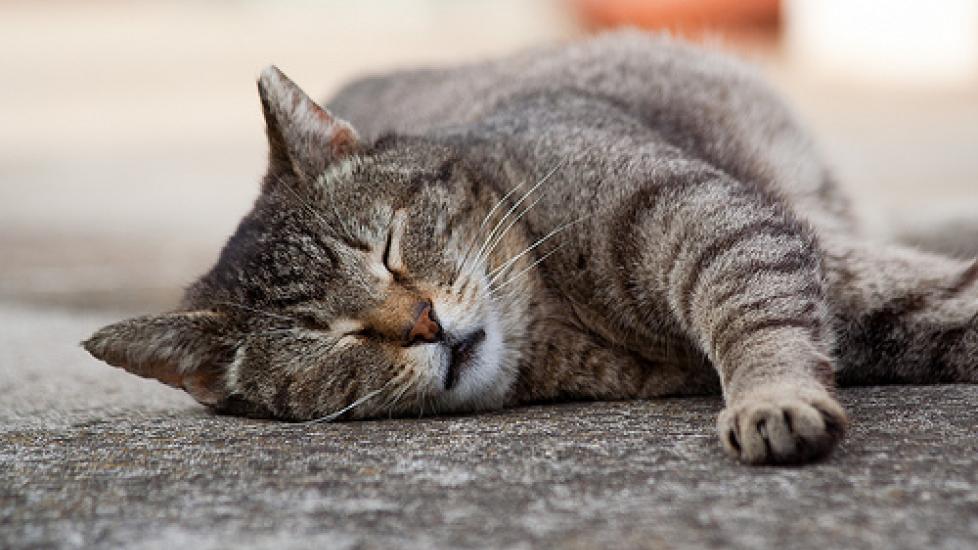Senior Cats: A Few Things To Keep In Mind
Taking Care of Feline Senior Citizens
Older cats need you to keep caring for them the way you always have been—with love and devotion—plus some extra attention paid to a few details. Let’s look at what pet parents can do to keep senior cats healthy and happy for as long as possible.
Increase the Vet Visits
For older cats, every year that passes is like a person aging four years. In other words, a 13-year-old cat is 68 in “human years” while a 14-year-old is 72. This means that you could be missing a lot in between your cat’s annual vet visits. A checkup every six months helps lessen the chances that a health condition will go undiagnosed for an extended period of time. Plus, twice-yearly vet visits allow you to divide the expense of needed veterinary care. You and your veterinarian can determine an appropriate schedule for diagnostic testing (e.g., blood work, urinalysis, blood pressure checks, and fecal exams), parasite control, vaccinations, dentistry, or any other care that might be necessary.
Vet Recommended Health Support
Monitor Eyesight
Like people, a cat’s eyesight worsens as it gets older. Make sure your vet pays special attention to your cat’s eyes during checkups. If your cat should experience diminished eyesight or blindness, a familiar routine will be very important. Keep things tidy and in their normal spot. While most cats adapt to poor eyesight extremely well, consider setting up a kitty “apartment” in your home where all of the necessities are close at hand or provide multiple water and food bowls, bedding, and low-sided cat litter boxes throughout your house so your cat never has to look far for what it needs.
Cater to Mobility Problems
Older cats often develop arthritis, which can make jumping, climbing, and self-grooming difficult and painful. If your cat likes to spend time in a window, chair, or bed, consider building or purchasing pet stairs or ramps to make life easier. Cats also appreciate extra heat sources as they age, so consider placing a bed near a sunny window or providing access to a heating pad. You may also need to ramp up your grooming routine if your cat is becoming matted or scruffy. Talk to your veterinarian as well, since many cats benefit greatly from medications, supplements, acupuncture, cold laser therapy, and other forms of treatment for arthritis.
Don’t Ignore Dental Care
Dental problems can be exquisitely painful and have an adverse effect on a cat’s overall health. Keeping your pet’s teeth clean with regular tooth brushing and other forms of dental hygiene are an excellent first step. Your vet should perform a thorough oral exam at every visit, but if you are noticing that your cat is having trouble eating or is suffering from oral pain, don’t wait to bring it to your veterinarian’s attention.
Watch for Symptoms of Common Health Problems
While cats of all ages can become sick, they are more prone to certain conditions as they age. In particular, kidney disease, cognitive dysfunction (similar to dementia), hyperthyroidism, high blood pressure, diabetes, inflammatory bowel disease, and cancer are more commonly diagnosed in older cats. Symptoms like changes in urinary habits, increased or decreased appetite, vomiting, diarrhea, respiratory problems, abnormal behaviors, weight loss, and unusual lumps and bumps should be evaluated by a veterinarian immediately.
Assess the Diet
As cats get older, they can develop problems digesting fat and protein. This means that they may start to lose weight and muscle mass even if they are healthy and still have a good appetite. If this is true for your cat, consider switching to a food with a higher caloric density that is made from good quality, highly digestible fats and proteins. Your veterinarian can help you find an appropriate food based on your cat’s particular needs.
Like people, cats age at different rates. Just make sure you provide your cat with everything it needs to enter its twilight years as healthy and happy as possible.
Image: Umberto Salvagnin / via Flickr
